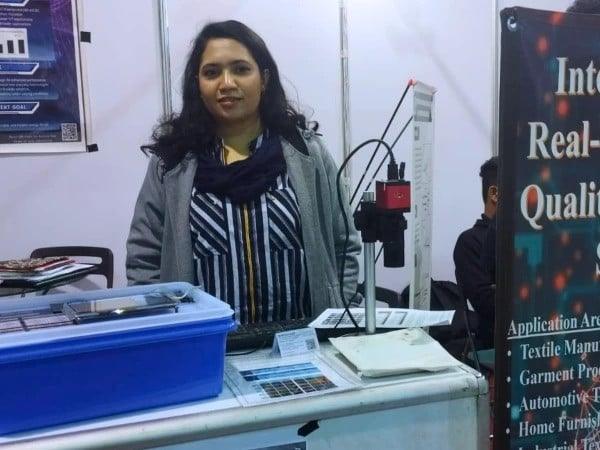Karachi:
A graduate of NED University in Karachi has developed an artificial intelligence-driven system poised to solve one of the country’s textile industry’s biggest challenges – detecting fabric defects before production.
The innovation, called Intelliinspect, enables real-time identification of fabric quality issues, potentially saving millions per year by reducing waste. The system promises to minimize the risk of shipments being rejected in export markets due to defective textiles, a recurring problem in Pakistan’s largest export industry.
“I believe it is the world’s first analytical system of its kind. With proper support, Intelliinspect could prove to be an important step in improving the quality of Pakistan’s textile sector,” said Suboohi Arif, creator of the system and a graduate specializing in automation and applications engineering.
AI-driven technology can detect various defects in knitted and woven fabrics, such as broken threads, stains, tears and holes. Unlike traditional inspections, Intelliinspect analyzes unprocessed (gray) fabrics as well as dyed and printed fabrics in real time.
Suboohi said tests on more than 3,000 samples of knitted and woven fabrics showed the system’s accuracy was above 95% and 90%, respectively. Detection time ranged from 40 seconds to a maximum of 77 seconds.
The system uses high-speed sensors and cameras installed on textile manufacturing lines. It quickly identifies defects during the production process, reducing costs incurred at later stages.
“This allows manufacturers to avoid making products from defective fabric and improve profitability by reducing production losses,” she said.
The system can be applied across multiple textile segments including garment production, automotive textiles, home furniture and industrial textiles. Intelliinspect improves production efficiency, accuracy and continuity while reducing operational costs.
Suboohi aims to collaborate with industry stakeholders to integrate the system into manufacturing facilities, helping to improve the quality of export products while maximizing business profits.
“This technology not only reduces costs but also opens avenues for data-driven analysis, improving decision-making in the industry,” she added.
Pakistan’s textile sector, accounting for more than half of the country’s exports, has long struggled with quality control issues. If implemented at scale, Intelliinspect could mark a significant transformation for the industry, increasing its global competitiveness.




